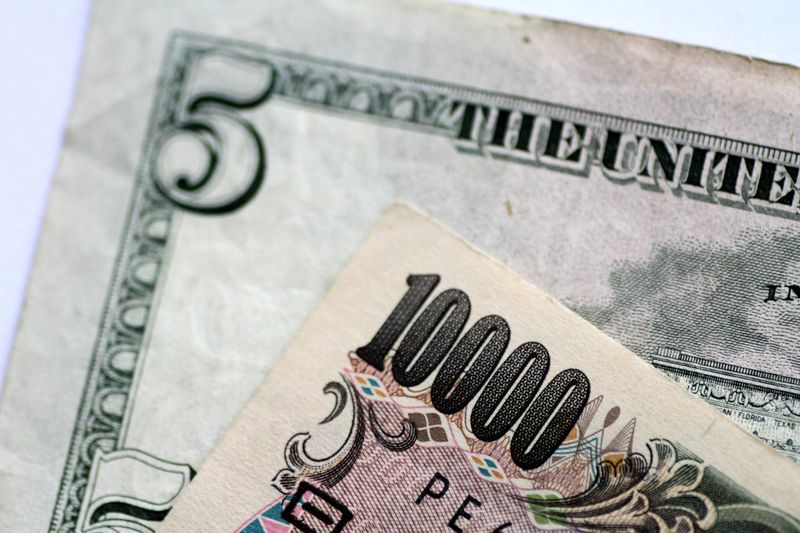[ad_1]

© Reuters. FILE PHOTO: U.S. Dollar and Japan Yen notes are seen in this picture illustration June 2, 2017. REUTERS/Thomas White/Illustration
By Kevin Buckland
TOKYO (Reuters) – The yen sank against major peers on Monday after U.S. payrolls data bolstered the case for further Federal Reserve rate hikes, highlighting a growing disparity with Japan where the central bank continues to pin the benchmark yield near zero.
Meanwhile, the risk-sensitive New Zealand and Australian dollars weakened amid heightened U.S.-China tensions over Taiwan, with Beijing a key trading partner for the Antipodean nations.
The yen slipped 0.4% against the U.S. dollar to 132.70, extending its decline from Friday, when data showed the U.S. economy continued to add jobs at a brisk pace in March.
Ten-year Treasury yields reached 3.413% in shortened trading on Friday for the Easter holiday. The yield remained elevated at 3.3719% in Tokyo on Monday, when many markets in Asia as well as Europe will remain closed.
Against the euro, the yen slumped over 0.5% to 144.635. It fell roughly 0.3% versus sterling.
The dollar strengthened against the yen because of the continued strong growth in the U.S. labour market despite inflation and sharp interest rate rises, Mizuho analysts Masafumi Yamamoto and Masayoshi Mihara wrote in a client note.
“Yields in places like the euro area, Britain and Australia will follow U.S. yields higher, so there won’t be a big widening of the yield gap,” they said. “Relative to them, yield spreads will see a much bigger impact in Japan.”
However, the increase in jobs was less than the prior month and the rise in average hourly wages was less than economists forecast, which the Mizuho analysts said was not consistent with a sustained rise in U.S. yields.
Barring an upside surprise in U.S. consumer price data on Wednesday, the dollar has limited room to rise against the yen from current levels, they added.
New Bank of Japan Governor Kazuo Ueda takes over from Haruhiko Kuroda on Monday, and is widely expected to keep massive stimulus in place for the time being. He will give an inauguration speech at 7:30 p.m. JST (1030 GMT).
Meanwhile, the New Zealand dollar slumped about 0.7% to $0.62325, and the slipped 0.13% to $0.6665. Stock and bond markets in both countries are closed for the Easter Monday holiday.
The dollar edged 0.05% higher to 6.8784 yuan in offshore trading.
China began three days of military drills on Saturday simulating precision strikes against Taiwan, the day after Taiwan President Tsai Ing-wen returned from a brief visit to the United States.
In other currencies, sterling slipped 0.02% to $1.2410, while the euro gained 0.02% to $1.0899.
[ad_2]
Source link
(This article is generated through the syndicated feed sources, Financetin doesn’t own any part of this article)
